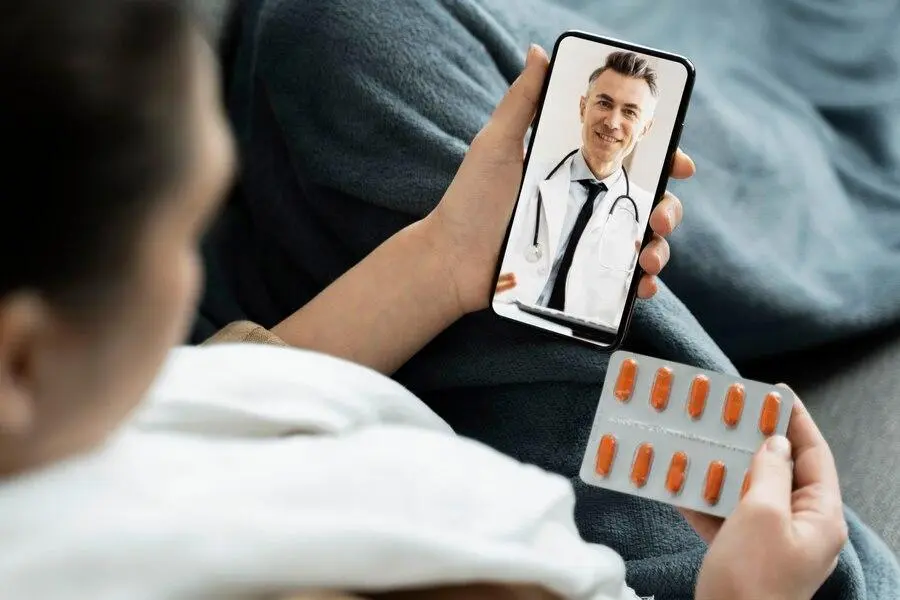In our time, the field of healthcare is going through a significant change where it welcomes mobile technologies. One big trend is the creation of health-related applications on mobile devices that we call, in short, mHealth. These fresh solutions are changing how patients and health care providers communicate with each other and they promise to bring about a more dependable, effective and individualistic way for delivering healthcare services.

Benefits of mHealth
Integrating mHealth apps into the healthcare ecosystem offers many benefits that can have a significant impact on patient outcomes and overall well-being. However, the development and implementation of these healthcare mobile apps should only be entrusted to top-level specialists with deep expertise in healthcare technology, software engineering, data security protocols, privacy regulations and an understanding of complex medical processes.
Their skills are crucial for creating robust, user-friendly and compliant mHealth applications that can properly handle sensitive patient data while taking advantage of the latest technological advancements.
Improved involvement of patients
Ability to empower patients and promote active involvement in their healthcare journey. Through mobile apps, individuals can easily track vital signs, monitor symptoms, and receive personalized reminders for medication adherence.
This increased engagement not only fosters a sense of control over one’s health but also encourages open communication with healthcare providers, leading to better-informed decisions and improved treatment outcomes.
Simplified healthcare access
mHealth applications have the potential to bridge the gap between patients and healthcare services, particularly in remote or underserved areas. With the convenience of mobile devices, individuals can access medical advice and receive guidance without the need for physical visits. This increased accessibility can be a game-changer for those facing mobility challenges, transportation barriers, or limited access to healthcare facilities.
Lightweight data management
mHealth apps can connect with electronic health records and other systems in healthcare, making it easy to handle data. This helps healthcare providers to look at medical records of patients, follow how treatment is going on and make decisions based on live data. The smooth movement of information does not only improve care quality but also cuts down on the risk of mistakes while boosting teamwork among the health team members.
Cost reduction
The implementation of mHealth solutions can potentially reduce healthcare costs for both patients and providers. Additionally, early intervention and preventive care facilitated by mHealth apps can help identify and address health issues before they escalate, potentially avoiding more costly treatments or hospitalisations.
Personalised approach
mHealth apps can collect and analyze a wealth of data from various sources, including wearable devices, symptom trackers, and patient-reported outcomes. By leveraging this data, healthcare providers can gain deeper insights into individual patient needs and tailor interventions accordingly.
Personalised care plans, customised medication regimens, and targeted lifestyle recommendations can significantly improve treatment efficacy and overall health outcomes.

Potential Risks and Challenges
While the benefits of mHealth are undeniable, it is critical to be aware of the potential risks and challenges associated with its implementation. Although with competent work of IT specialists, all these factors are obviously unleveled, it is worth at least familiarising yourself with them.
Data privacy and security
As sensitive medical information is transmitted and stored through mobile devices, ensuring data privacy and security becomes paramount. Robust cybersecurity measures, encryption protocols, and strict and understandable data protection policies must be implemented to safeguard patients’ personal and medical information from unauthorised access or cyber threats.
Digital literacy and accessibility
The successful adoption of mHealth solutions relies heavily on digital literacy and accessibility. Healthcare providers must ensure that patients, particularly those from underserved or marginalised communities, have access to the necessary technology and receive adequate training to effectively utilise mHealth applications. Failure to address this challenge could exacerbate existing healthcare disparities.
Integration and interoperability
For effective data sharing and care continuity, mHealth apps must be seamlessly integrated with the infrastructure and systems already in place in the healthcare industry. Realising the full potential of mHealth requires addressing interoperability issues and creating industry-wide standards for compatibility and data sharing.
Embracing the Future of Healthcare
The healthcare sector must embrace the transformative power of mHealth. By leveraging these innovative solutions, we can empower patients, enhance access to care, and promote better health outcomes.
However, it is imperative to address the potential risks and challenges proactively, ensuring that patient privacy, security, and accessibility are at the forefront of mHealth initiatives.
The future of healthcare lies in the harmonious integration of cutting-edge technologies and compassionate human-centric care. By striking this delicate balance, we can harness the potential of mHealth to create a more efficient, personalized and professionally built inclusive healthcare ecosystem, ultimately improving the lives of individuals and communities alike.
Conclusion
The rise of mHealth represents a transformative era in the healthcare sector, one that promises to redefine the way we approach patient care and well-being. As digital technologies continue to evolve, it is essential for healthcare providers, policymakers and the broader community to embrace these innovations while addressing potential risks and challenges. By doing so, we can unlock the full potential of mHealth, fostering a future where personalized, accessible and efficient healthcare is within reach for all.





